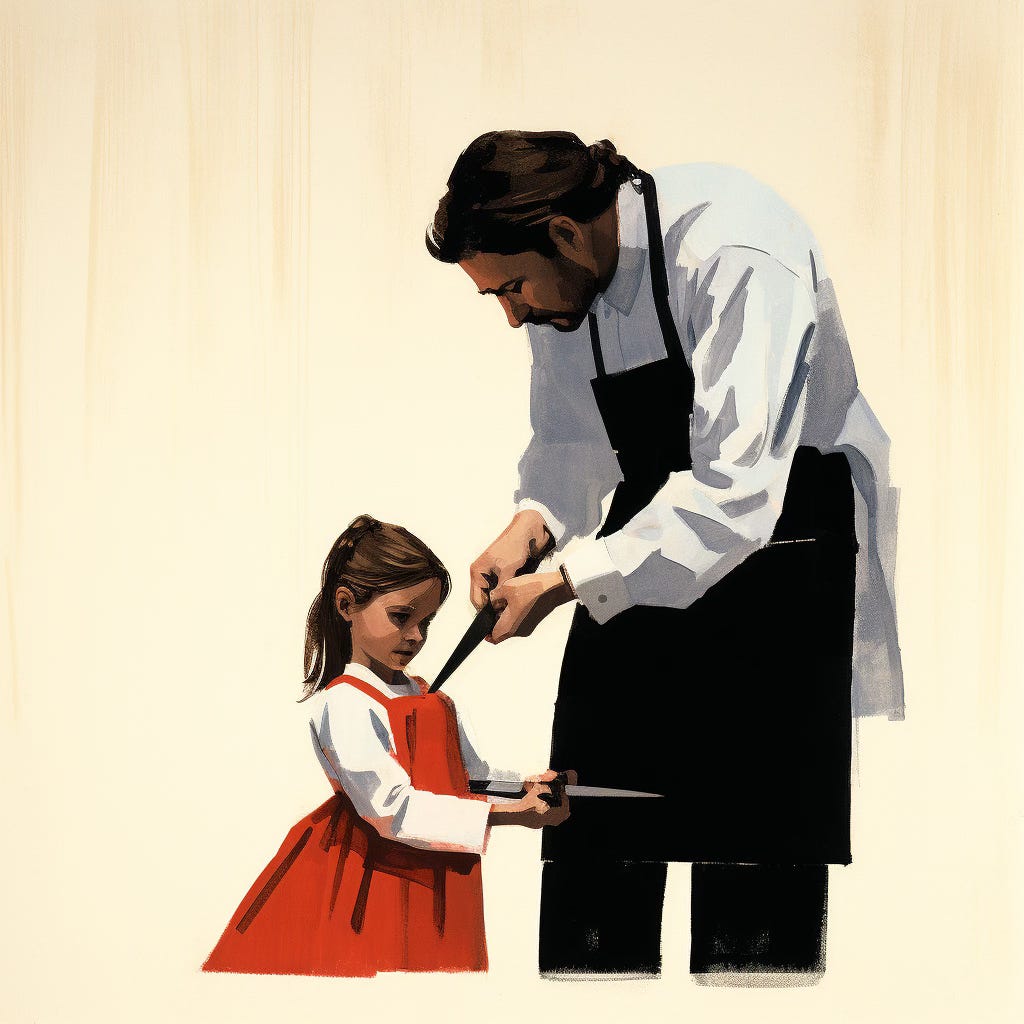Giving Versus Receiving: Which Requires Skill?
Plus, a Poem
All subscriptions are free! So…
Christmas provides me with countless good memories. The holiday takes anchor in childhood, and if you are lucky, you receive a shower of magical gifts that allow the coming weeks or month to shine with newness. Yes, we know the maxim, “It is better to give than to receive,” but let’s be real—kids love Christmas because they get presents.
In that sense, the joy of giving proves to be a very different quality than receiving. Giving, like a skill, must be developed. You have to work at giving, practice it, succeed and fail, and put thought, effort, and care into the act—we use the expression “it’s the thought that counts” for a reason; it is a euphemism for failed giving.
So if I can hypothesize, you become a better giver with age, and I could just state the obvious and say that babies, completely helpless, do nothing but receive, though they do often give, unknowingly, in the joy that is their mere presence, cuteness, and humor that is intertwined with learning to navigate language and therefore the world.
This got me thinking about my children and how the time they will remain as permanent residents of our home shortens each day. Yes, it pains me, but I also love this condition that causes pain because the paradox also delivers the pure marvel of who they are becoming as people, their expansive thoughts, our conversations, a realized maturity that seems to have conjured itself right out of the air.
I want to say that being a parent is the most true of monotheisms (even in a two-parent household “parents” are the single, god-like entity). Most monotheisms are characterized by eschatology, the great final ending that involves returns and judgments and counting all the chips and tokens of whatever amounted to this living game. I don’t care for eschatological thinking—I read it like a failed third act. It’s too easy and ironic, and given what I’ve written so far, maybe I’m saying eschatological thinking is “childish” in a way that the term doesn’t actually apply to children.
But I do deeply believe in sacrifice, and so we return to “giving,” as sacrifice exemplifies one of most significant forms of what it means to give. Thus, in thinking about this holiday, about my children, and about the times ahead, I remembered an older poem I had written called “Sacrifice.” I reread it today in a mindset very different from when I wrote it. Yes, the poem explores reversals, but when I wrote the poem I didn’t know how to live the poem. Now I think I do.
I hope you are all doing well.
Sacrifice
by Chuck Rybak
The play knife
flush against my neck
cuts down
punctuated by a child
in a doctor's coat
her determined "all fixed"
My pretend life gamely drains
from patriarchal veins
pours out our nightly inversion
of sacrifice and covenant
of a flat-on-his-back father
cut by a cute little Isaac
with no use for archetypes
Blood flows across the hardwood
down the mountain
soaks the room's plush menagerie
in all the life I have to give
A fat sheep smiles
proud prow
of a stuffed animal armada
of a thousand tiny idols
washing away
the great monotheism


